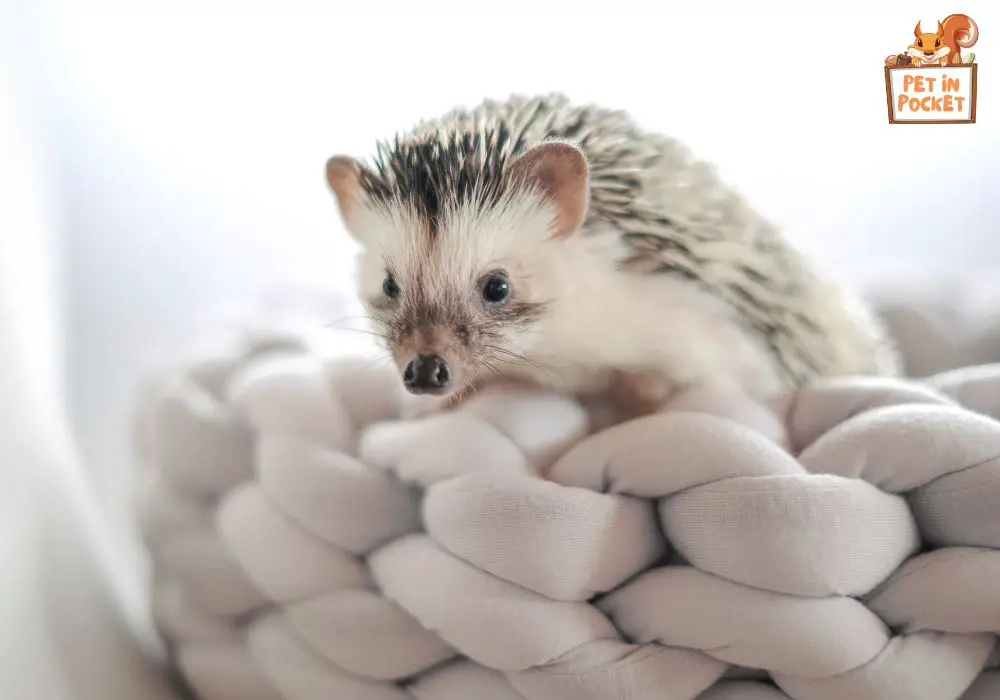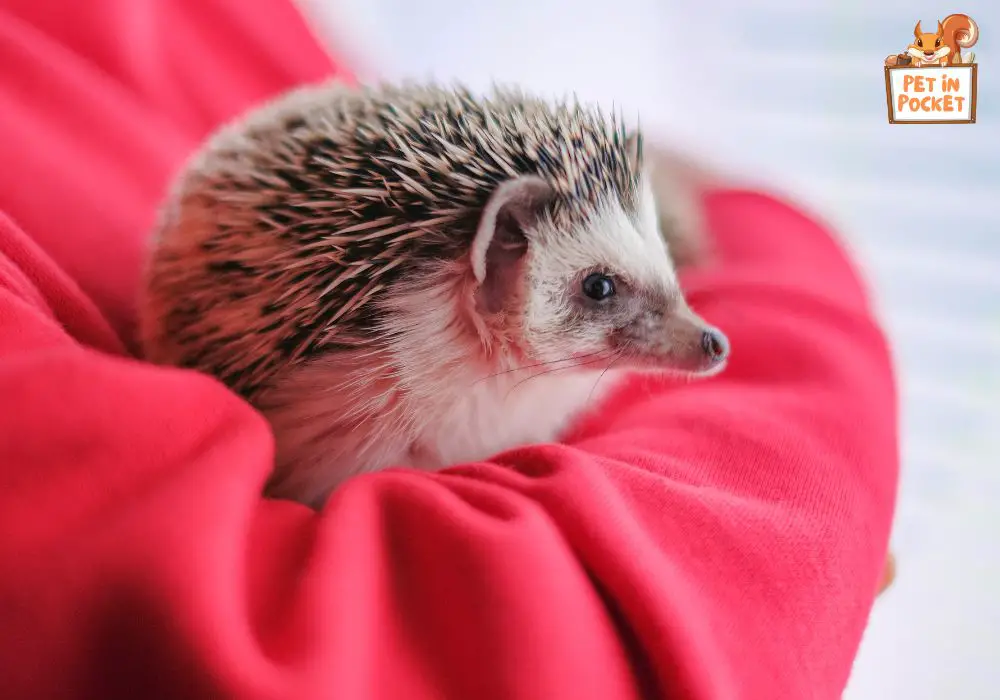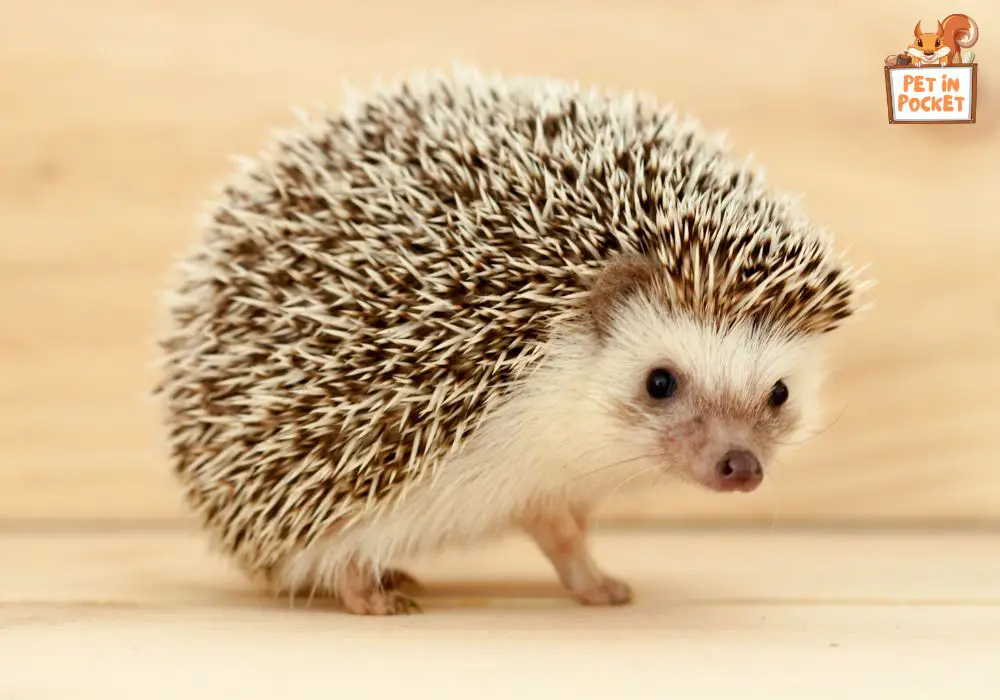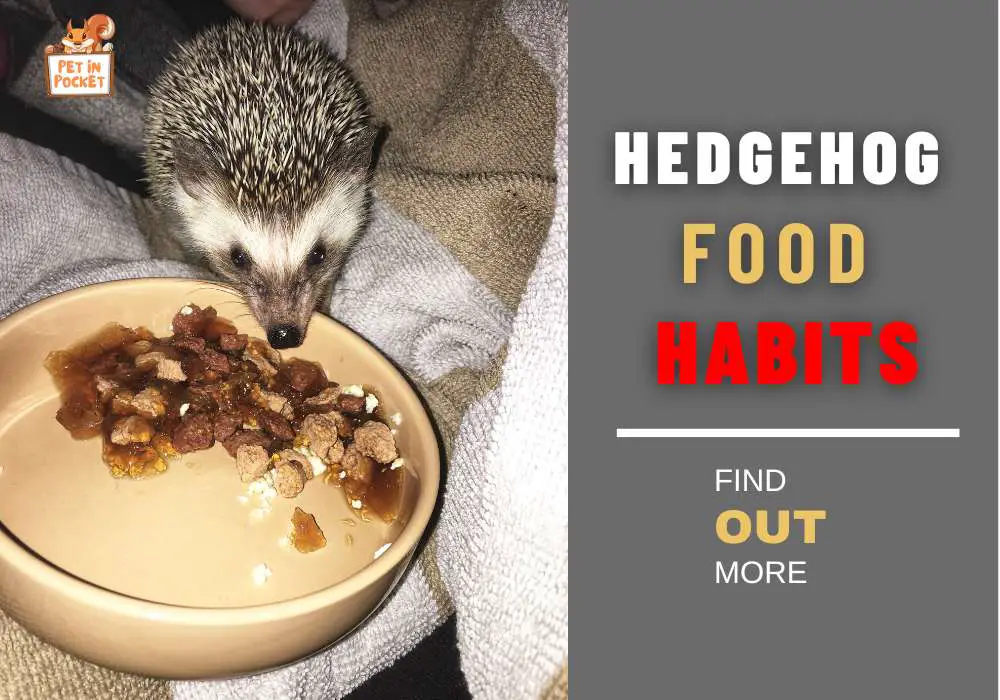When considering the question of “how long do pygmy hedgehogs live,” it’s important to note that these small, domesticated animals usually enjoy a lifespan ranging from 3 to 6 years. With attentive care, including a balanced diet, regular health checkups, and a suitable living environment, some pygmy hedgehogs can surpass this average, reaching up to 10 years of age.
Table of Contents
What Are Pygmy Hedgehogs?
African Pygmy Hedgehogs are tiny animals that only come out at night. They are about 6 to 8 inches long and weigh about 1 to 2 pounds. They have short, sharp spines on their backs that are light-coloured with darker bands. They have soft, thick fur on the bottom that can be white, dark brown, or black. They have small, pointed faces with dark, tiny eyes and a head. Their small, rounded ears make them stand out even more.
What Factors Influence Pygmy Hedgehogs Lifespan

Pygmy hedgehog longevity depends on various factors:
- Genetics may make hedgehogs more prone to heart disease and cancer, which can limit their lifetime. Their immune system may also be affected by lineage genetic variety.
- Pygmy hedgehogs need a balanced, natural diet. Bugs, cooked meats, and certain fruits and vegetables are allowed. Overeating or an imbalanced diet may cause heart disease, diabetes, and joint problems, shortening lifespan.
- Environmental factors significantly impact hedgehog health and lifespan. They need a clean, open environment for feeding and burrowing. The surroundings should be safe and temperature-controlled to avoid captivity-harmful hibernation.
- Pygmy hedgehogs need mental stimulation and interaction to avoid boredom and stress, which may harm their health.
- Ethical breeding affects pygmy hedgehog health and longevity. Reputable breeders care for their hedgehogs’ health, genetic variety, and well-being to reduce genetic diseases and ensure a good start.
Health fears that shorten pygmy hedgehog lifespans

African Pygmy Hedgehogs are cute pets but have health complications that shorten their longevity. Here are some of the most common health concerns:
Wobbly Hedgehog Syndrome (WHS)
Wobbly Hedgehog Syndrome is a neurological condition leading to muscle control and coordination loss, primarily seen in the hedgehog’s hind legs before it progresses to other areas. Hedgehog owners are devastated by the diagnosis’s unknown origin and no remedy. As the disease advances, hedgehogs struggle with basic movements, ultimately affecting their ability to lead an everyday life and significantly shortening their lifespan.
Dental Diseases
Dental problems in hedgehogs can range from gingivitis and tartar buildup to more severe issues like tooth decay and loss. These dental issues can cause significant discomfort, making it hard for hedgehogs to eat and maintain proper nutrition, which is crucial for their overall health. Poor oral health may cause systemic illnesses and shorten their lifespan.
Obesity
Pet hedgehogs can get obese from overfeeding and inactivity. Weight gain strains their bodies, causing heart disease, liver difficulties, and diabetes. Managing a hedgehog’s diet and ensuring they have ample opportunity for exercise is critical to preventing obesity and its associated health risks.
Mites and Skin Disorders
Skin issues, including mite infestations and fungal infections like ringworm, can cause significant discomfort for hedgehogs, leading to scratching, quill loss, and potentially secondary skin infections. Addressing these issues is crucial to prevent them from worsening and affecting the hedgehog’s overall well-being.
Cancer
Hedgehogs can develop various types of cancer, affecting their skin, internal organs, or reproductive system. Cancer may be difficult to cure, depending on its kind and course, reducing life quality and longevity. Regular health checks can help detect and manage cancerous conditions early.
Respiratory Infections
Hedgehog respiratory infections may cause sneezing, coughing, and nasal discharge. If not addressed in time, these infections can progress to more severe conditions like pneumonia, significantly impacting their health and survival.
Gastrointestinal Issues
The gastrointestinal problems in hedgehogs, such as diarrhoea, constipation, or blockages, can lead to dehydration, nutritional deficiencies and other underlying health issues. A balanced diet and monitoring for gastrointestinal discomfort are crucial for their health and the prevention of serious problems.
How can my pet pygmy hedgehog live long?

Let’s look more closely at each part of taking care of your pygmy hedgehog:
Proper Housing
Size of the Cage: The inability to move around in a confined cage might promote tension and weight gain. A bigger room gives you different places to sleep, eat, and work out, making it feel like you’re in the wild.
Weather: Hedgehogs can tell when the weather changes. Hedges go to sleep when the temperature drops below 72°F (22°C). This is dangerous for them because they might not wake up properly, which could cause health problems or even death.
Beds: It’s essential to have safe and comfortable beds. Fabric bags can be used more than once, and they won’t clog intestines or cause breathing problems like loose bases can.
Nutrition
Food: A diet that is too high in fat can make you fat, and a diet that is too low in protein can leave you lacking essential nutrients. Good cat food usually has the right amount of everything, but make sure it meets their nutritional needs as well as being easy to feed.
Treats: Treats should only be given in small amounts. Some fruits and veggies, like onions and grapes, could be bad for your hedgehog, so finding out what’s safe is essential.
Hydration: Drinking clean water is good for your health and stomach. To keep people from drowning, a small water dish is suggested.
A Regular Workout
Wheel: The training wheel should be solid so that their feet don’t get hurt. Wheels with bars can make things go wrong.
Playtime: Hedgehogs need to keep themselves busy and active outside their cage so they don’t get bored and can naturally explore. Ensure the area is safe and has no small gaps where they could get lost or stuck.
Medical Care
Regular Checkups: Finding common hedgehog health problems early, like tooth problems, fat, and skin problems, can keep them from getting worse.
Preventing Parasites: Even indoor cats can get parasites, so talk to your vet about how to keep them from happening.
Care for Your Nails: Nails that are too long can curl and dig into your feet, hurting and infecting you.
Mental Exercise
Enrichment: Toys, dens, and everyday items like toilet paper rolls can be fun and keep your mind active.
Treatment: Regular, gentle treatment helps them get used to people, which makes them less stressed. However, making them engage when they want to be alone can backfire.
Keeping clean
Cleanliness: An animal can get lung illnesses and parasites in a dirty cage. Cleaning it often keeps pee ammonia from building up and lowers the risk of getting sick.
Bathing: Hedgehogs’ skin naturally makes oils that protect it. Too many baths can remove these oils, which can cause skin problems. You should only take baths when you need to.
Observation
Behaviour: Bad changes in behaviour may be the first sign that someone is sick. Dogs that are tired don’t want to eat or have changes in how they go to the bathroom should see a doctor.
Maintaining a healthy weight: Hedgehogs often become overweight, which can cause heart disease, stomach problems, and gout. Keep an eye on their weight to catch these problems early.
If you pay close attention to these care tips, you and your hedgehog will likely have a long and happy relationship. Always be ready to change how you care for your hedgehog because each has its personality and health needs.
Conclusion
Hedgehogs can eat romaine lettuce in moderation. This lettuce is low in fiber and high in minerals. Yet, you need to offer the green in small portions. It is even better if you mix romaine lettuce with a fiber-rich vegetable or leafy green.
Iceberg lettuce, on the other hand, is not healthy for hedgehogs. This green contains high water content and low mineral percentage. Therefore, pets can be at a risk of mineral deficiency.
FAQ
What should I feed my Pygmy Hedgehog for longevity and health?
Pygmy Hedgehogs should eat high-quality hedgehog food or low-fat, high-protein cat food. Fresh fruits, vegetables, and insects like mealworms may help improve their health. Always have fresh water.
How often should I take my Pygmy Hedgehog to the vet?
It’s recommended to have an initial veterinary visit shortly after acquisition and then annual checkups. However, if you notice any signs of illness or changes in behaviour, you should consult your vet immediately.
Does Pygmy Hedgehog get along with other pets?
Solitary Pygmy Hedgehogs thrive in isolation. Introduce them to new pets slowly and under strict observation to avoid stress and aggressiveness.
Are Pygmy Hedgehogs active at night?
Nocturnal Pygmy Hedgehogs are active at night. Respect their regular resting cycles and connect with them at night when they’re more engaged and aware.
Should Pygmy Hedgehogs exercise?
Yes, Pygmy Hedgehogs need exercise to be healthy and avoid obesity. A spacious, secure place to roam and a running wheel in their cage may help them exercise.






Leave a Reply